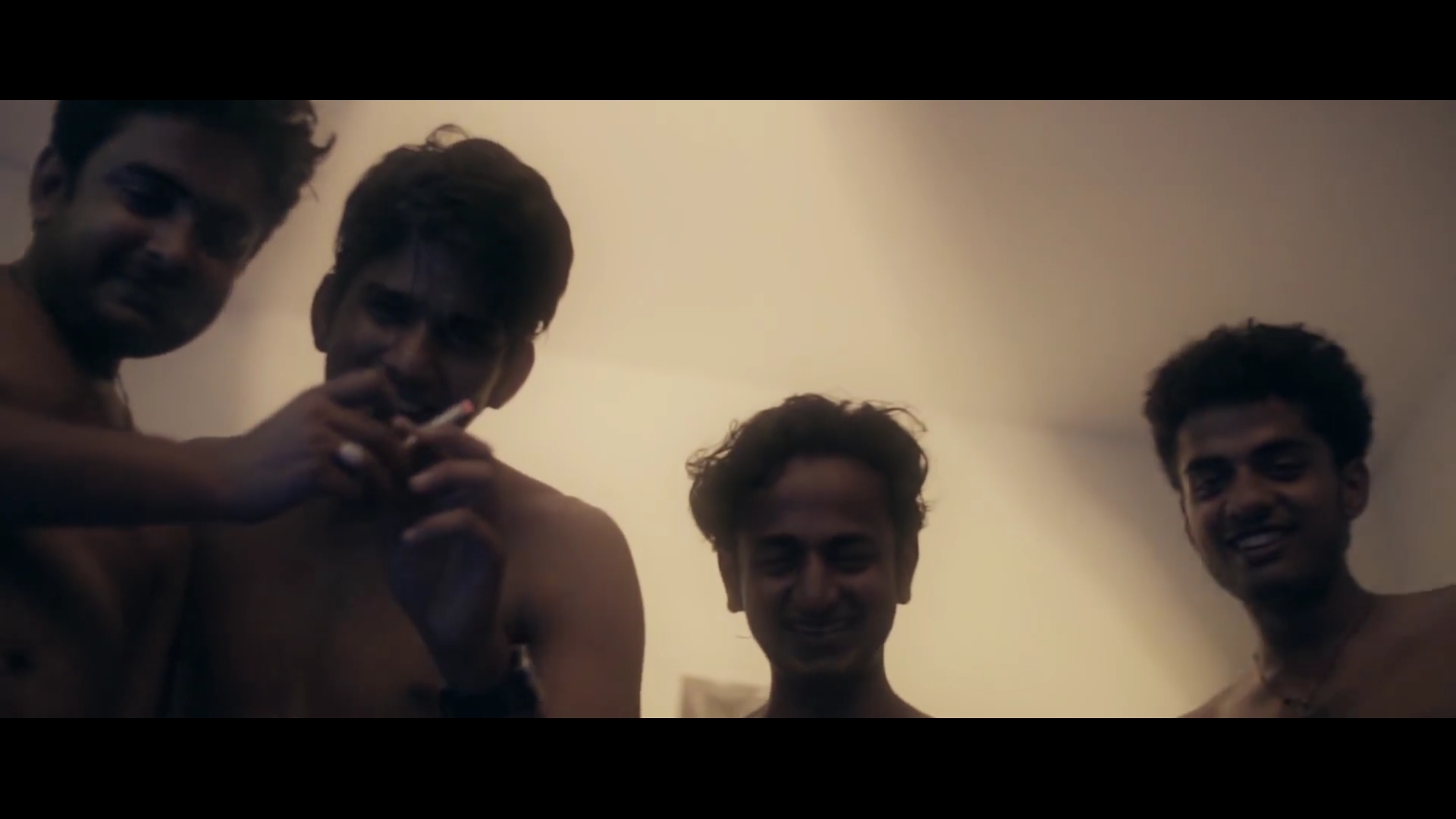Some stories leave an indelible mark on history, and the Junko Furuta case is one of those dark chapters that continues to haunt Japan decades later. This isn't just another crime story; it's a chilling reminder of the depths of human depravity. The case of Junko Furuta shocked the nation and brought to light issues that many preferred to ignore. As we delve into this harrowing tale, prepare to confront some uncomfortable truths.
Back in 1988, Japan was rocked by one of the most heinous crimes in its history. The kidnapping and subsequent torture of 14-year-old Junko Furuta by a group of teenage boys sent shockwaves through the country. It wasn't just the brutality of the act that stunned everyone, but also the fact that it was committed by minors. This case forced Japan to reevaluate its juvenile justice system and sparked nationwide debates about crime prevention.
What makes the Junko Furuta case even more disturbing is how it unfolded right under the noses of authorities. For over three weeks, Junko was held captive, tortured, and eventually killed in a suburban house in Tokyo. Her screams went unnoticed, her cries for help unanswered. This tragedy serves as a grim reminder of the importance of community vigilance and the need for systemic changes in how we handle juvenile offenders.
- Filmy Flycom 2025 Your Ultimate Guide To The Latest Movie Streaming Platform
- Filmyfly Com Movie Download Hindi Dubbed Your Ultimate Guide
Understanding the Background of the Junko Furuta Case
Let's rewind to late November 1988 when everything seemed normal in suburban Tokyo. Junko Furuta, a bright 14-year-old girl, was abducted by four teenage boys on her way home from school. What started as a seemingly random kidnapping soon spiraled into a nightmare that would haunt Japan for years to come. The boys initially planned to extort money from Junko's family, but things took a sinister turn when they decided to keep her as their personal plaything.
Over the next 44 days, Junko endured unimaginable horrors. She was confined to a small room in one of the boy's houses, subjected to relentless physical and sexual abuse. Her captors took turns torturing her, recording her suffering as some kind of twisted trophy. It's hard to comprehend the level of cruelty these teenagers exhibited, especially since they were barely older than their victim.
This section will explore the circumstances leading up to the abduction, the initial reactions of the community, and the eventual discovery of Junko's remains. Understanding the background is crucial to grasping the magnitude of this tragedy and its long-term impact on Japanese society.
- Filmyfly Bollywood Hindi Dubbed Movies The Ultimate Guide To Your Movie Binge
- Filmyfly Com Movie Your Ultimate Destination For Blockbuster Entertainment
Who Was Junko Furuta?
Before we dive deeper into the case, let's take a moment to remember Junko Furuta, the young girl whose life was cruelly cut short. Junko was a typical teenager, excelling in her studies and active in school activities. She had dreams and aspirations like any other 14-year-old, but her life was tragically cut short by the actions of four monsters in human form.
| Full Name | Junko Furuta |
|---|---|
| Date of Birth | June 15, 1974 |
| Age at Time of Incident | 14 years old |
| Place of Incident | Tokyo, Japan |
| Occupation | Student |
Knowing who Junko was helps put a human face to this tragedy, reminding us that she was more than just a statistic in a crime report. Her story continues to resonate with people around the world, urging us to reflect on how we can prevent such horrors from happening again.
The Perpetrators: A Closer Look
The four teenagers responsible for Junko's abduction and murder were all between the ages of 16 and 17 at the time of the crime. What drove these young boys to commit such an atrocity? Was it a lack of moral compass, peer pressure, or something more sinister? Let's examine each of the perpetrators and their roles in this heinous act.
- Kazuyoshi "Tommy" Matsuo: The ringleader of the group, Matsuo was the mastermind behind the kidnapping. He orchestrated the entire operation and was the primary abuser.
- Hideo Saito: Saito acted as the lookout during the abduction and participated in the torture sessions. He was also responsible for recording the abuse.
- Masato Ichikawa: Ichikawa provided the location where Junko was held captive and assisted in the daily abuse.
- Shuji Fujita: Fujita's role was more passive, but he still participated in the abuse and helped conceal the crime.
Each of these boys came from different backgrounds, yet they all shared a disturbing lack of empathy and a willingness to inflict harm on an innocent girl. Their stories serve as a cautionary tale about the dangers of unchecked aggression and the importance of early intervention in troubled youths.
Why Did They Do It?
The motivations behind the perpetrators' actions remain murky, even after all these years. Some psychologists suggest that the boys were acting out of a desire for power and control, while others point to environmental factors such as poverty and lack of parental guidance. Whatever the reason, the fact remains that they chose to inflict unimaginable suffering on an innocent girl.
This section will explore the psychological profiles of the perpetrators, drawing on expert opinions and case studies to shed light on their mindset. Understanding what drove them to commit such a heinous crime is essential in preventing similar incidents in the future.
The Legal Aftermath
When the truth about Junko's ordeal finally came to light, it sent shockwaves through the Japanese legal system. The perpetrators were all minors at the time of the crime, which complicated the prosecution process. Under Japanese law, juveniles cannot be tried as adults, meaning the boys faced lighter sentences than they would have if they were adults.
Despite the limitations of the law, the court handed down the harshest sentences possible for juveniles. Matsuo, the ringleader, received a life sentence, while the others were sentenced to lengthy prison terms. However, many in Japan felt that justice had not been served, given the severity of the crime.
This section will delve into the legal proceedings, examining the challenges faced by prosecutors and the eventual outcomes for the perpetrators. It will also discuss the public's reaction to the sentences and the broader implications for Japan's juvenile justice system.
Reforms in the Wake of the Case
The Junko Furuta case prompted significant changes in Japan's approach to juvenile crime. Recognizing the limitations of the existing system, lawmakers introduced reforms aimed at addressing the root causes of juvenile delinquency and ensuring that future offenders faced appropriate consequences for their actions.
Some of the key reforms included:
- Lowering the age of criminal responsibility
- Increasing the severity of sentences for violent crimes
- Enhancing community support programs for at-risk youth
While these changes were a step in the right direction, critics argue that more needs to be done to prevent such tragedies from occurring in the future. The case of Junko Furuta continues to serve as a rallying cry for those advocating for systemic change.
The Impact on Society
The legacy of the Junko Furuta case extends far beyond the courtroom. It left an indelible mark on Japanese society, prompting widespread discussions about crime prevention, juvenile justice, and community responsibility. The case also highlighted the need for greater awareness of domestic violence and the importance of reporting suspicious activity.
Many people were left wondering how such a heinous crime could go unnoticed for so long. Neighbors reported hearing screams coming from the house where Junko was held captive, yet no one took action. This failure to act serves as a stark reminder of the importance of community vigilance and the need for better communication between citizens and law enforcement.
This section will explore the broader societal impact of the case, examining how it influenced public opinion and policy-making in Japan. It will also discuss the ongoing efforts to honor Junko's memory and prevent similar tragedies from occurring.
Lessons Learned
As we reflect on the Junko Furuta case, it's important to consider what lessons we can take away from this tragedy. One of the most significant takeaways is the importance of early intervention in cases of juvenile delinquency. By addressing the root causes of criminal behavior, we can help prevent future atrocities.
Another key lesson is the need for greater awareness and education about domestic violence and the importance of reporting suspicious activity. Community vigilance plays a crucial role in preventing crimes like the one that befell Junko Furuta. By working together, we can create safer communities for everyone.
Remembering Junko Furuta
Decades after her tragic death, Junko Furuta's memory continues to inspire people around the world. Her story serves as a powerful reminder of the importance of compassion, empathy, and community responsibility. While nothing can bring her back, we can honor her memory by striving to create a world where such horrors never happen again.
This section will explore the various ways people have honored Junko's memory, from memorials and vigils to educational programs and advocacy efforts. It will also discuss the ongoing fight against violence and the importance of standing up for justice and human rights.
How You Can Help
If you're moved by Junko's story and want to make a difference, there are several ways you can help. Supporting organizations that work to prevent violence and protect vulnerable populations is one of the most effective ways to contribute. You can also educate yourself and others about the issues surrounding juvenile crime and domestic violence, helping to raise awareness and promote change.
Together, we can ensure that Junko Furuta's memory lives on, inspiring future generations to work towards a safer, more compassionate world.
Conclusion
The Junko Furuta case remains one of the darkest chapters in Japan's history, a chilling reminder of the depths of human depravity. By examining the events surrounding this tragedy, we can gain valuable insights into the importance of early intervention, community vigilance, and systemic change. While nothing can undo the harm inflicted on Junko and her family, we can honor her memory by working to prevent similar tragedies in the future.
I urge you to share this article with others and continue the conversation about how we can create safer communities for everyone. Together, we can make a difference and ensure that Junko's story serves as a catalyst for positive change. Let's not let her memory fade; let's use it to inspire action and promote justice for all.
Table of Contents
- Why Filmy4wap Xyz 2025 Movie Download Is Trending Ndash The Ultimate Guide
- Unlock The Magic Of Filmyfly Com Download Ndash Your Ultimate Guide


